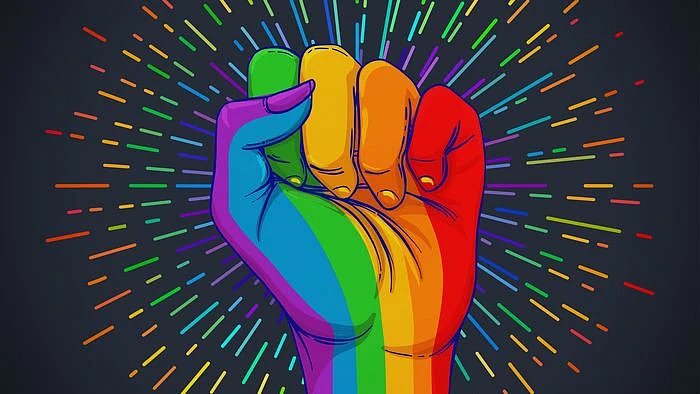
Conversion Therapy: Will 'Get Treated' Really Stop, Asks Trans Medical Student
One of the potential problems that arises is the conversion therapy practices done by AYUSH doctors.

advertisement
(Trigger warning: Descriptions of homophobia. Reader discretion advised.)
In a society that has pathologised queer identities – seeing it as 'psychologically abnormal' – the first thing most cisgender-heterosexual persons suggest is to "get treated."
Twenty one-year-old Anjana Harish died by suicide in 2020 after she was subjected to conversion therapy, forcing the media to take attention on the matter. Later in 2021, Tamil Big Boss contestant Namitha Marimuthu spoke about the medical violence she was subjected to at a 'rehabilitation'.
More recently, Adam Harry, a pilot who is a transgender man, shared how he was locked in a room and subjected to 'therapy'.
Therefore, the decision by the Madras High Court, and the subsequent response from National Medical Commission (NMC), is a welcome step.
In line with this, the Ethics and Medical Registration Board of the NMC – the apex regulatory body for all evidence-based medicine doctors in India – has sent a circular informing all state medical councils that, 'conversion therapy' will be considered as a professional misconduct. The board has empowered state bodies to take action against doctors practising it.
But the question to ask is – will this really stop the unscientific practice? There are at least four issues that we need to address.
1. Why Did the NMC Not Take Cognisance On Its Own?
While the work by the Madras HC, and numerous other activists, doctors, lawyers behind this historic move, is laudable, it is essential to acknowledge that the NMC sent the circular only after constant reminders by Justice Anand Venkatesh in the Sushma v Commissioner of Police Case.
The Madras HC had on 10 July issued a series of directions for the upliftment of the LGBTQ+ community, including asking the NMC to label 'conversion therapy' as professional misconduct. The NMC has simply complied with what the court has said.
This shows that the NMC’s ethics and medical registration board lacks representation from the LGBTQIA+ community, and the subsequent result is the gross insensitivity shown over ethical issues concerning health of the community members, who are at the receiving end of the decisions taken by these bodies.
2. The Loopholes in Implementation
Another issue that must be addressed is that there are potential loopholes at the implementation level in banning conversion therapy.
For example, the classification of 'ego dystonic sexual orientation' in International Classification of Diseases-10 (ICD-10) stated that any individual suffering from distress caused due to their sexual orientation can be a subject for medical intervention (indicating conversion therapy).
But a lot of times this distress is caused due to lack of acceptance in society, lack of awareness about their orientation, and the uncertainty about their future, and not by the orientation itself.
This is the case of many doctors in India. They are yet to update their practice in accordance to ICD-11, begging the need for the NMC to ensure that such loopholes are avoided.
3. The AYUSH Doctors Conundrum
Another potential problem that arises is the conversion therapy practices done by AYUSH doctors. Though the Mental Healthcare Act of 2017 states that healthcare professionals in mental health sector are supposed to treat based on guidelines of ICD and the Diagnostic and Statistical Manual of Mental Disorders-5, this is seldom followed by AYUSH doctors.
And the fact that the AYUSH Ministry has released no guidelines for their practitioners regarding queer-affirmative practices is very concerning. That makes it difficult to hold the practitioners accountable for performing an unscientific 'treatments' on gullible queer individuals.
4. What About Psychologists, Psychotherapists
Yet another issue at implementing level of this ban is the difficulty we would face at applying this to other mental healthcare providers, such as psychologist and psychotherapists.
Oftentimes, mental healthcare services function as a multi-disciplinary approach. And that is how it works in terms of conversion therapy as well.
Hence, it is imperative to send circulars through governing bodies of psychologists and psychotherapists to make it a professional misconduct for them as well.
After years of queerphobia in the medical curriculum, finally they have started to revamp it to be queer-affirmative.
(Vignesh (he/she/they) is a trans non-binary medical student. This is an opinion piece and the views expressed above are the author’s own. The Quint neither endorses nor is responsible for the same.)
- Access to all paywalled content on site
- Ad-free experience across The Quint
- Early previews of our Special Projects
Published: undefined